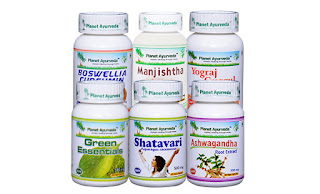Herbs helpful for managing Ehlers-Danlos Syndrome and Postural Orthostatic Tachycardia Syndrome
We were given an excellent book for Christmas, which is packed with wonderful advice about how to use herbs in daily life to improve our health.
Why chemicals are making us sick
For EDS sufferers, immunity is a big issue. So it makes sense that you would do whatever you can to improve your health, naturally. The key thing with any herb or fruit or vegetable is to source it from farms which don't use pesticides, herbicides, fungicides or Glysophate. These chemicals cause poor health issues and affect your immunity in powerful ways, such as reducing your ability to fight off cancers or other significant diseases such as diabetes and liver/kidney disease. THey interfere with fertility, too. These chemicals are NOT listed on ingredients lists o packets, of course. You have to do your own due diligence. And finding out what has been sprayed upon your food is very difficult. Much better to source from trustworthy producers than rely upon supermarkets to tell you the truth.
One of the authors of this book, Nicole Apelian, has MS (Multiple Sclerosis) and has successfully managed her symptoms using herb lore. It's a powerful concept! The book is very comprehensive, giving details about the plants' uses, growth habits, how to harvest, side effects as well as benefits etc. I thoroughly recommend it!
Okay, so what herbs are helpful?
POTS (in my case) means my veins are too stretchy and my blood pressure is low, falling even lower when I stand up or during hot days, or if I've been standing for too long. You have to be careful with herbs or even foods which boast 'improves circulation' because these usually involve vaso-dilation - opening of the blood vessels, which is exactly what I DON'T want! The herbs I need must be stimulants.And even there I have to be careful, because stimulants are often just irritants, such as chili, cayenne pepper and peppermint. These are a disaster if you have IBS and a sensitive stomach!
Here it is in a nutshell:
AVOID herbs which dilate blood vessels and have other unwanted side effects, such as:
- borage (lowers BP)
- sweet basil (lowers BP removes calcium going into blood vessels)
- parsley (relaxes blood vessels)
- onion, chives, garlic (alium family)
- dandelion (lowers BP, but has lots of benefits)
- celery seed extract (lowers BP)
- evening primrose oil
- cinnamon (dilates blood vessels)
- ginger
- cardamom
- lavender
- lemon balm
- arnica
- licorice without glycyrrhizin removed
- peppermint
- chili
- cayenne pepper
- selfheal (a mint which lowers BP)
- sweet marjoram (lowers BP)
- valerian (relaxes blood vessels, lowering BP)
- violets (blood thinner)
- catsclaw (lowers BP)
- false helabore (reduces BP)
- maiden hair fern (opens blocked veins)
- mugwort (lowers BP)
- solomon's seal (lowers high BP but has other benefits)
- birch (stimulates digestion, lowers BP, relieves diarrhea)
- hawthorn berry, flowers (reduces diastolic BP by opening up blood vessels)
which reduce nausea, lower cortisol and improve adrenal fatigue such as:
- rosemary (improves concentration and memory, neuro-protective, poor circulation, low BP, stimulates digestion, anti-inflammatory)
- aloe vera (also good for IBS, heartburn, gum health)
- cabbage
- Californian poppy (good as a sedative for bedtime)
- camomoile
- chicory
- dill
- echinacea
- fennel
- hops (anxiety, sedative)
- lemon thyme (good for asthma)
- lemon verbena
- DGL licorice root with glycyrrhizin removed (supports liver detox and lymphatic system) Long term use or high doses of licorice root can have serious side effects, but removing the glycyrrhizin reduces the risks.
- mallow root (mallow root tea is good for mucucs membranes, relieves nausea)
- milkthistle
- oregano (stimulates metabolism and weight loss, good for asthma)
- prickly pear juice (low FODMAPS) enhances blood circulation but can also cause diarrhea)
- sage (balances hormones for men and women, doesn't affect BP, aids digestion by moving fat through the GI tract)
- sheep sorrel (relieves GI problems, but avoid if hyper-acidic, kidney stones, arthritis as it's high in oxalate)
- stinging nettle (increases production of red blood cells which helps circulation)
- lambs ears (heart tonic, helps sore mouth)
- yarrow (contracts blood vessels, stops bleeding)
- bacopa monnieri (improves anxiety, memory, depression)
- bearberry (reduces inflammation in uro-genital system, stomach cramps)
- black cohosh (improves night sweats, flashes, palpitations, moodiness, mental fog)
- ashwagandha (winter cherry, or Indian ginseng)
- false unicorn root (balances hormones in men and women, sore throat)
- horsetail (improves cognition, diabetes, foot fungus)
- raspberry (tones blood vessels)
- spanish moss (helps hormones)
- unicorn root (menopause, skin aging, muscle and joint pain)
- wild ginger root (peri-dontal issues, gingivitis, lowers cholesterol)
- wild/alpine strawberries (stomach issues, sore throat
- wormwood (fights breast cancer, crohns, IBS, acid reflux, malaria, lyme disease)
- American linden (relaxes blood vessels)
- bilberry, wild blueberry (helps strengthen blood vessel walls, detoxing heavy metals and iron from the blood, improves vision, eye strain, cataracts etc. anti-cancer, anti-inflammatory, Alzheimers, IBS, healthy gums)
- cranberry (improves urinary tract function, cardio-vascular health, anti-oxidant, anti-cancer, anti-tumour)
- horse chestnut (strengthens veins, improves leg cramps & swelling, GI problems, IBS, male fertility, but be careful if taking blood thinners)
- red vine leaves (strengthens blood vessels)
- blackcurrant (strengthens connective tissues, counteracts hyper-acidity)
- papaya, particularly seeds (high in carotenoids and enzymes which help skin stay youthful)



Comments
Post a Comment